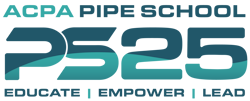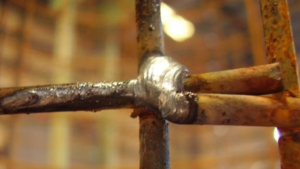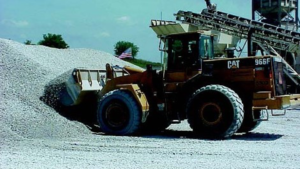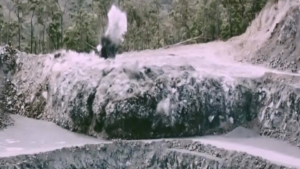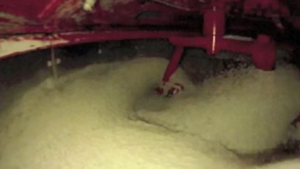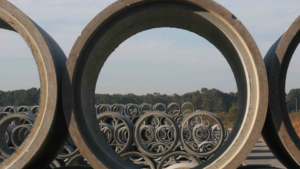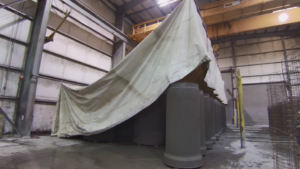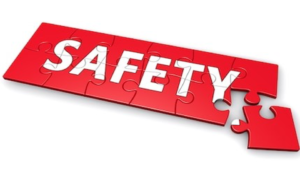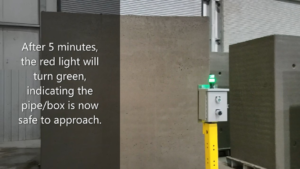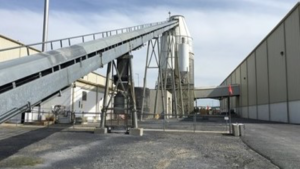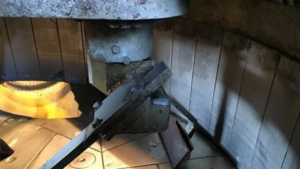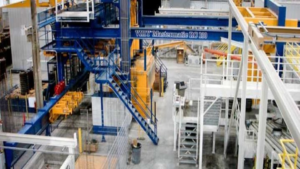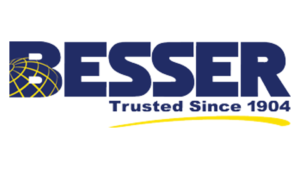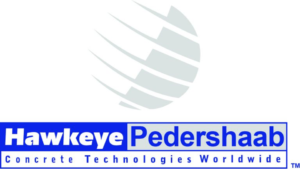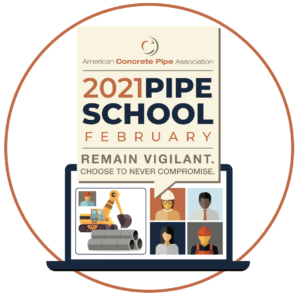Production Track Schedule
Production tracks made available on-demand throughout the month of February.
**Production Tracks are for ACPA Members only**
REGISTER: ACPA Members can register for the Production School Tracks by clicking here.
This year the ACPA will bring the Production Tracks directly to the comfort of your own plant as they are pre-recorded and available on-demand for registrants throughout the month of February. The ACPA strongly recommends that plants use this opportunity to train their employees in an in-plant class environment coordinated through a designated Plant Training Facilitator. More information provided on the ACPA Member Registration Page.
Students who take the Production Tracks will learn everything from raw materials to finished product and process improvements. Classes emphasize proper production procedures including safety, quality, operations and personal management skills. Industry best practices on safety and quality improvement will also be covered.
Special machinery workshops will be covered by industry partners and Diamond Sponsors, Affinitas (formerly HawkeyPedershaab) and Besser. Students will also have a chance to learn about industry products and processes from associate members and sponsors via hands-on videos and examples that are embedded into the training classes.
Additionally, scheduled live panels of experts will be available to provide answers to any questions throughout the month. These sessions will be recorded and shared with all registered plants. Specific details of the training classes will be provided at a later date.
Below is a description of the different classes available during the Production School Tracks.
Track Outline (click to jump to track)
1 – The Beginning
2 – Reinforcement
3 – Cage Production
4 – Cage Details
5 – Raw Materials
6 – Aggregates
8 – Concrete
9 – Pre-Pour
10 – Drycast Production
12 – Post-Pour
13 – Finishing
14 – The Safety Jigsaw
17 – Decision Making
18 – Effective Meetings
19 – Batch Plant 1
20 – Batch Plant 2
21 – Effective Operations
22 – Problem Solving
23 – Issues & Solutions 1
24 – Issues & Solutions 2
25 – QCast Audits
26 – QC Management
27 – Material Testing
28 – Product Testing
29 – Quality Improvement Ideas
30 – BESSER
31 – Hawkeye
32 – Into the Future
Production | Advanced Production | Quality
Track 1 – The Beginning
- Welcome, Introductions, School Overview
- How do safety, quality, and production go together?
- Customer expectations and impact
Track 2 – Reinforcement
- How reinforcement coils, rolls, bars, and sheets are made
- How reinforcement works, structural basics
- Steel nomenclature & understanding steel area
- How to identify and inspect different reinforcement (coils, rolls, bars, mats)
Track 3 – Cage Production
- Types of cages and production processes (including rebar)
- The “Do’s” and “Don’ts”
- Proper chairs and spacers
Track 4 – Cage Details
- Effects of misplaced steel
- Laps, Welds and bends
- Lift holes, inserts
- Tying it all together, performing a good cage inspection
Track 5 – Raw Materials
- Where they come from and how they’re made (cement, fly ash, aggs)
- Importance of water
- Admixture types and effects
Track 6 – Aggregates
- Key properties and how they affect concrete (size, shape, gradation)
- Moisture effects, management and control
- Storage and handling
Track 7 – Concrete Production
- Types of concrete; drycast, wetcast, SCC
- What are they and where are they used?
- Mixers and mixing concrete, sequencing, transport
- “Do’s” and “Don’ts”
Track 8 – Concrete
- Quality drycast/packerhead, wetcast and SCC
- Checking consistency
- Typical problems and possible causes/solutions
Track 9 – Pre-pour
- Forms/equipment; condition, mounts, vibrators, inspections
- Release agents
- “Do’s” & “Don’ts”
Track 10 – Drycast Production
- Filling a drycast form
- Filling a packerhead form
Track 11 – Wetcast/SCC Production
- Filling a wetcast form
- Filling an SCC form
Track 12 – Post-pour
- Proper curing
- Stripping & handling
- Yarding & Product Inspections
- Common defects and possible causes/solutions
Track 13 – Finishing
- Repairs and finishing;
- Cosmetic, performance and structural repairs
- Best practices, best materials for each type
Track 14 – The Safety Jigsaw
- How our safety tools work together and fit like pieces to a puzzle
- Example: Task Analysis, when used to train sets the procedure, the behavior audit piece fits nicely to verify the training has been completed well
Track 15 – Employee Centric Safety
- How we communicate with our employees motivates them to meet their safety responsibilities
- Components of this class will take a perspective employee view, (i.e. how do they view their safety role?)
- How do we best motive our employees to ensure safety is a functional element of their role?
Track 16 – Safety Improvement Ideas
- Highlights all the safety improvement ideas as presented by the finalists for the ACPA Chairman’s Safety Awards
Track 17 – Decision Making
- When faced with difficult decisions, we must first identify what we can control, what we can’t control, and what we can influence. This episode will provide you a way to make better decisions when everything is urgent and important
Track 18 – Effective Meetings
- Whether in-person or virtual, time with our team must be used effectively. This episode will show you how to incorporate the full meeting planning cycle
Track 19 – Batch Plant 1
- A poor maintenance and non-existing PM program will result in costly downtime, but it also negatively impacts the quality of concrete. This class outlines the batch plant operations from receiving of materials, all the way to transporting mixed concrete to the production area
Track 20 – Batch Plant 2
- Since there aren’t two precisely identical concrete batch plants, there’s no one comprehensive PM program for everyone to use. However, maintenance tips and ideas shared during the class will provide useful solutions to implement in all types of batch plants.
Track 21 – Effective Operations
- Focus will be on the smaller things that need to be done in order for an operation to run smoothly
- Production Scheduling, Jobsite visits, Communicating with the Sales Team, Inventory Management
Track 22 – Problem Solving
- Troubleshooting problems within your operations and/or procedures
- Identifying problems and developing root cause analysis to better understand the problem and potential causes
Track 23 – Issues & Solutions 1
- Common Quality Issues
- Causes
- Solutions in Production
- Pre-pour and Materials
Track 24 – Issues & Solutions 2
- Common Quality Issues
- Causes
- Solutions in Production
- Pre-pour and Materials
Track 25 – QCast Audits
- What to expect during a QCast audit, helpful tips, critical items, and some common deficiencies identified by auditors
Track 26 – QC Management
- Duties and responsibilities of a QC Manager based on the QCast program requirements, and general good quality control practices.
- Training, experience, knowledge, qualifications
Track 27 – Material Testing
- Common material testing and pre/post pour inspections
- Plastic concrete testing and common materials testing and good practices
Track 28 – Product Testing
- Common product testing, including three-edge-bearing, joint testing, and box fit testing
Track 29 – Quality Improvement Ideas
- This episode highlights all the quality improvement ideas as presented by the finalists for the ACPA Chairman’s Quality Awards
Track 30 – BESSER
- BESSER Machinery Workshop
Track 31 – Hawkeye
- 10 BEST PRACTICES TO GET THE MOST FROM YOUR HAWKEYEPEDERSHAAB EQUIPMENT
If you want to know the best pressheading technique to use on your Hawkeye molds or how to evaluate your form equipment for wear and maintenance, and many other useful tips, join us for an information-packed machinery clinic presented by our technical experts. In one hour, you’ll come away with a wealth of information, supported by hands-on video demonstrations, that will keep your PipePlus, PipePro and other HawkeyePedershaab machinery in top condition
Track 32 – Into the Future
- The smooth flow created by Process Improvement
- Summary & What’s next?
- Intro to ACPA Production Journeyman Certification
